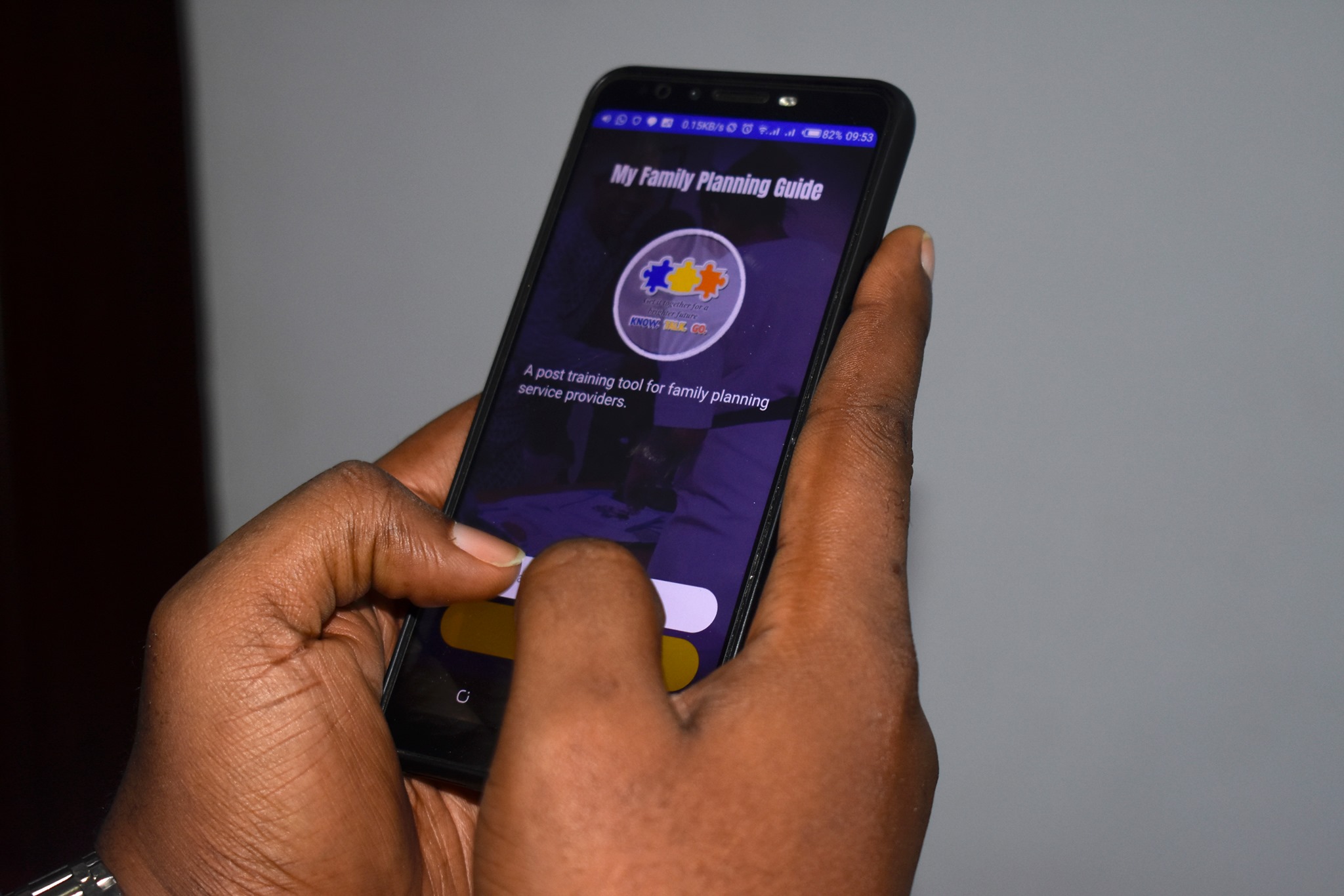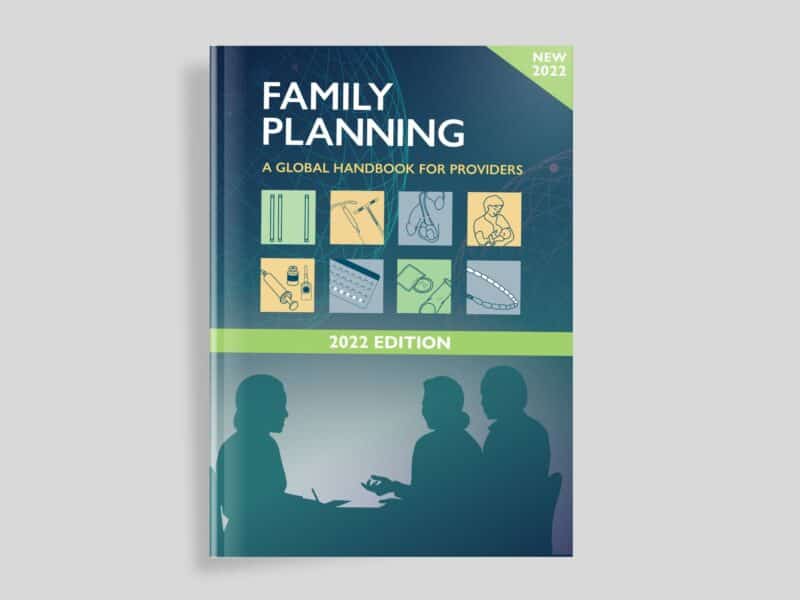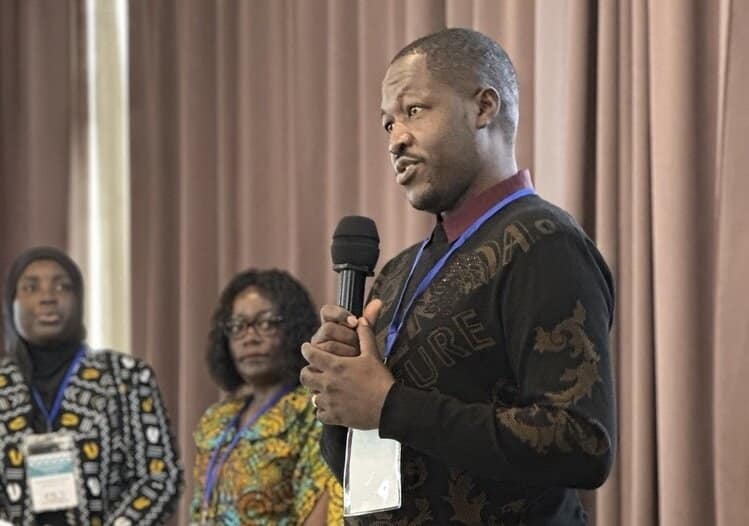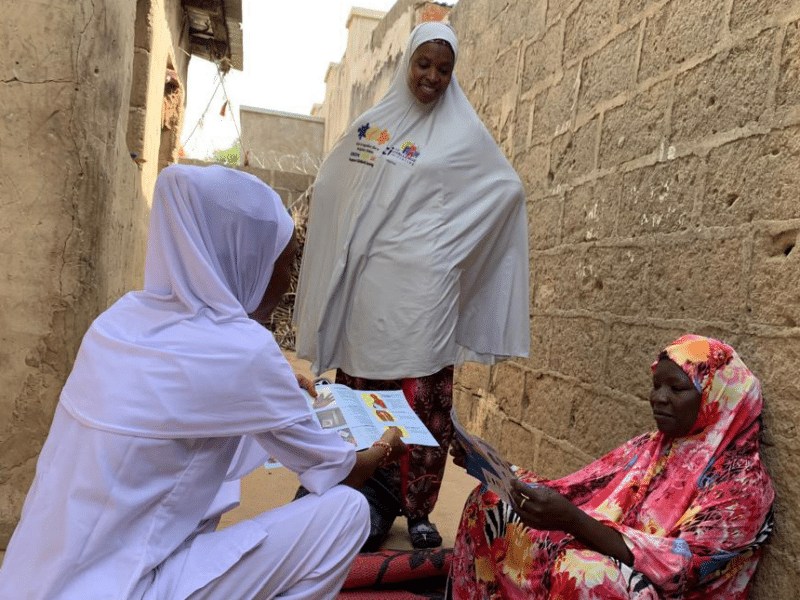At the touch of a button, Abimbola Justina Fummilade can get the answers she needs.
The family planning nurse from Oyo State, Nigeria, is an early adopter of the rebranded and updated “My Family Planning Guide,” a distance learning education mobile app designed not only to keep service providers like Fummilade up-to-date on the newest types of modern contraception and strengthen interpersonal communication with clients, but to help them gain insights from colleagues across Nigeria through a chat room function.
“I just type in my questions and I receive immediate responses from my fellow nurses,” she says. “I frequently interact and brainstorm with other service providers and family planning experts. … They say knowledge is power and this is one great learning tool for me.”
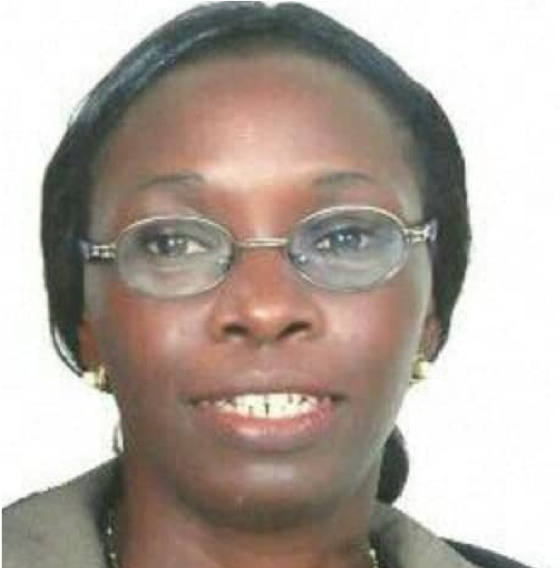
Nigerian nurse Abimbola Justina Funmilade uses the app in her family planning work.
This kind of enthusiasm is exactly what the Johns Hopkins Center for Communication Programs’ Nigeria Urban Reproductive Health Initiative (NURHI) was hoping for when it completely revamped the 2013 version of its distance learning app. The new version was created with the help of service providers themselves using a human-centered design approach .
“During the process of interacting with the service providers, one feedback we got was that one of the key ways they learn is from each other. So, we thought, how do we strengthen that?” says CCP’s Saratu Olabode-Ojo, NURHI’s technical director/programs.
NURHI research has found that many service providers in Nigeria have biases about who they offer family planning methods to. Some won’t recommend modern family planning to younger women who aren’t married or who don’t yet have “enough” children. Providers need to learn to keep their personal beliefs and biases from clouding their professional work, Olabode-Ojo says.
“With the app, they listen to each other and learn from others how to change this behavior so that they understand that at the end of the day, it’s their responsibility as service providers to provide family planning methods, regardless of their own beliefs,” she says.
“This locally developed, low-cost app,” says CCP’s Mojisola Odeku, MD, the family portfolio director for NURHI, “is consumer informed, consumer centered and addresses consumer needs with the flexibility to adapt.”
Odeku says the platform can be updated in the future to include maternal and child health information and other health information to providers.
Nigeria is a large country and to bring the nation’s 5,000-plus family planning providers in for updated training is costly and time consuming. Clinics need their staff on site to serve clients, not traveling to training sessions. The new app allows for providers to learn on their own time using their mobile phones, which they always have with them.
The new user-friendly app doesn’t just have chats. It contains highly-produced entertainment-education videos that address provider bias and include scenarios of clients and providers interacting with one another. It includes learning modules and a digest of news stories and quizzes to test your knowledge.
“We’re trying to get service providers across the country to use it,” Olabode-Ojo says.
As one family planning provider told the team: “[The app] is so good and educative. It will really help in teaching and improving my knowledge about family planning. It will guide us as providers and teach us on how to do procedures perfectly [and] counsel our clients very well. …
“I really love it.”

